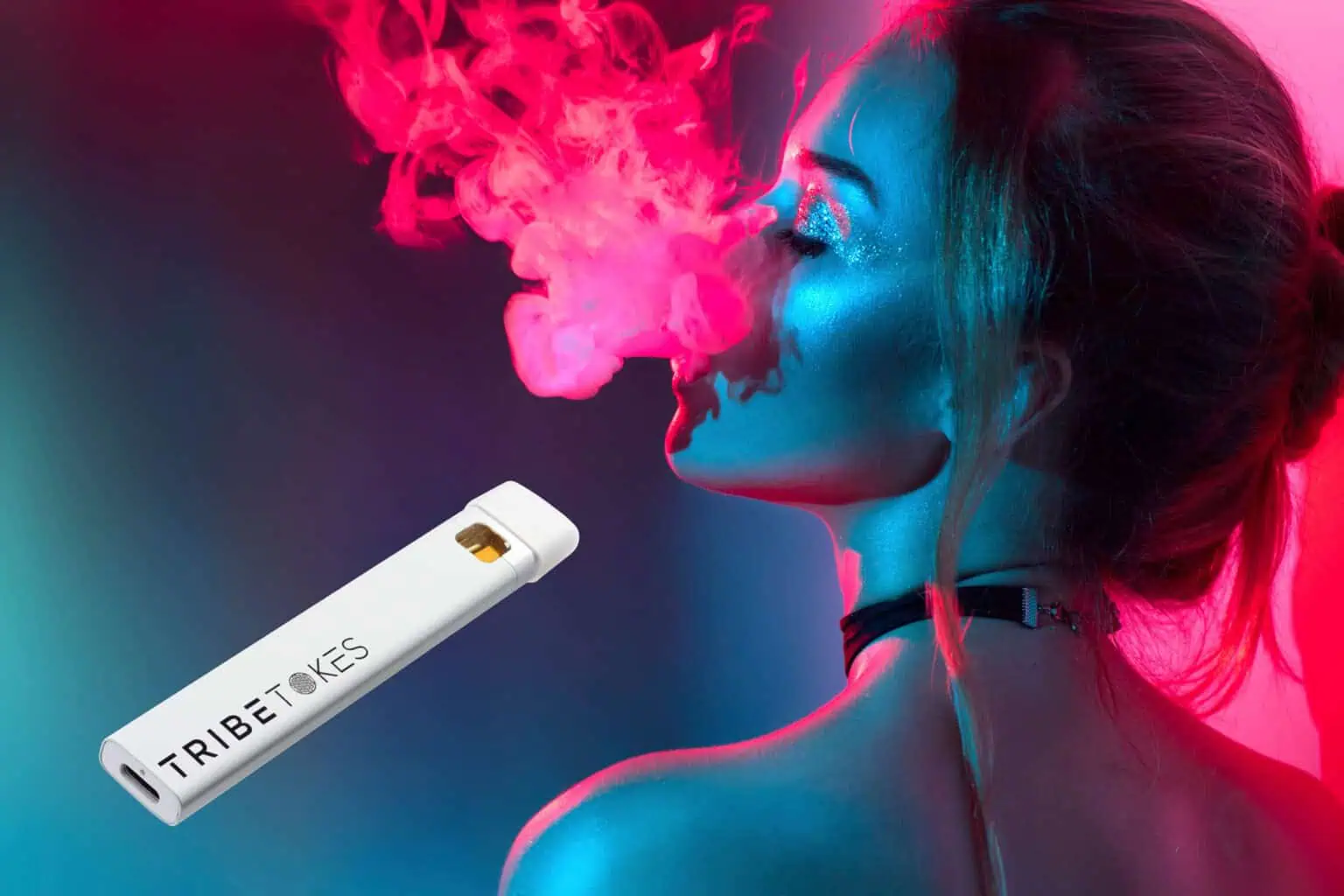Insomnia affects millions of people worldwide and can have serious repercussions on overall health, productivity, and quality of life. For many individuals, insomnia is more than just an occasional sleepless night; it’s a chronic condition that can impair mental clarity, increase stress, and make it difficult to focus during the day. While traditional sleep medications are often prescribed for short-term relief, they can have negative side effects, such as dependency, grogginess, and diminishing effectiveness over time.
This is where cannabis, specifically cannabinoids like THC (tetrahydrocannabinol) and CBD (cannabidiol), has become a promising natural alternative. This guide provides a comprehensive exploration of how cannabis works to help manage insomnia, focusing on how it interacts with the body, the types of products available, and the latest research on its effectiveness as a sleep aid. From weed pens to Delta 9 gummies and disposable vapes, we’ll look at how these products can help people manage their sleep disorders and what science says about cannabis for insomnia.
What is Insomnia?
Insomnia is a sleep disorder that causes individuals to experience trouble falling asleep, staying asleep, or waking up too early without being able to go back to sleep. The disorder can be divided into two types:
- Acute Insomnia: This is temporary and typically caused by stress, anxiety, a life event, or even a change in routine, such as travel or working night shifts. Acute insomnia may last for a few days to a week.
- Chronic Insomnia: This type of insomnia is longer-lasting and occurs at least three times a week for three months or more. It often results from underlying medical issues, mental health disorders (such as depression or anxiety), or lifestyle factors that interfere with a person’s sleep.
Symptoms of Insomnia
People with insomnia often experience the following symptoms:
- Difficulty falling asleep at night.
- Waking up frequently during the night or too early in the morning.
- Feeling tired or unrefreshed after waking up.
- Daytime fatigue or irritability.
- Trouble concentrating or remembering things.
If left untreated, insomnia can exacerbate other health problems, including chronic fatigue, depression, and anxiety disorders.
Why Cannabis May Help Insomnia
Cannabis has long been touted for its therapeutic properties, and its potential benefits for sleep have been recognized in both traditional and modern medical contexts. The key to cannabis’s sleep-promoting effects lies in its interaction with the body’s endocannabinoid system (ECS).
The Endocannabinoid System (ECS)
The ECS is a complex network of receptors and neurotransmitters that helps regulate several physiological processes, including sleep, mood, appetite, and pain. It plays a central role in maintaining balance in the body, known as homeostasis. The two primary receptors in the ECS, CB1 and CB2, are activated by cannabinoids found in cannabis, such as THC and CBD.
- CB1 receptors are found in the brain and central nervous system, while CB2 receptors are primarily located in the immune system and peripheral tissues.
- THC primarily binds to CB1 receptors, producing psychoactive effects that can induce a sense of euphoria or relaxation.
- CBD, on the other hand, does not bind strongly to CB1 or CB2 receptors but instead helps to balance the ECS, enhancing overall well-being and promoting calmness, which can help with sleep.
Through the ECS, cannabinoids can influence many bodily systems involved in sleep regulation, including relaxation, mood, and pain relief. By promoting a sense of calm, reducing anxiety, and helping to balance the sleep-wake cycle, cannabis has shown promise as a tool for improving sleep.
Cannabinoids: THC vs. CBD
When it comes to using cannabis for insomnia, THC and CBD are the two most studied and prominent cannabinoids. However, each has distinct properties that influence how they affect sleep.
THC and Its Sedative Effects
THC (tetrahydrocannabinol) is the main psychoactive compound in cannabis. It is known for producing the “high” that many associate with cannabis consumption, but it also has significant sedative effects that make it useful for sleep.
- Sleep Onset: THC has been shown to help people fall asleep faster. It decreases the time it takes to fall asleep by promoting relaxation and reducing anxiety.
- NREM Sleep: THC promotes deep, restorative stages of sleep, particularly non-rapid eye movement (NREM) sleep, which is crucial for physical rest and healing.
- REM Sleep Suppression: While THC can enhance deep sleep, it may suppress rapid eye movement (REM) sleep, which is the stage of sleep associated with dreaming. For some individuals, especially those suffering from post-traumatic stress disorder (PTSD), this suppression of REM sleep can be beneficial in reducing nightmares.
CBD and Its Non-Psychoactive Benefits
CBD (cannabidiol) is a non-psychoactive cannabinoid found in cannabis, meaning it doesn’t produce the “high” that THC does. However, it has a host of potential benefits for sleep disorders.
- Anxiety Reduction: CBD is well-known for its calming properties. It can help reduce anxiety, which is a common cause of insomnia. By promoting relaxation and decreasing the stress response, CBD may help individuals with insomnia fall asleep more easily.
- Pain Relief: CBD has analgesic (pain-relieving) properties that can be useful for people whose insomnia is caused by chronic pain or discomfort. CBD may improve sleep quality by reducing pain-related disruptions during the night.
- Sleep Cycle Regulation: Unlike THC, which can suppress REM sleep, CBD has been shown to maintain or even improve the balance of sleep stages, promoting both deep and REM sleep.
Recent Studies on Cannabis and Insomnia
While there is still much to learn about how cannabis affects sleep, several studies have shown promising results. Below are some of the most notable findings:
1. A Study Published in the “Journal of Clinical Psychology” (2020)
This study examined the effects of cannabis on sleep disturbances in individuals with chronic insomnia. It found that THC, in particular, helped individuals fall asleep faster and improved sleep duration. However, it also noted that regular use of THC might lead to a decrease in its effectiveness over time, suggesting the need for moderation.
2. Research on CBD and Anxiety-Related Insomnia
A study published in The Permanente Journal in 2019 explored the effects of CBD on anxiety and sleep in a clinical setting. It found that 79% of participants reported a reduction in anxiety after taking CBD, and 66% of participants experienced improved sleep quality. This study suggests that CBD’s ability to reduce anxiety could be key in improving sleep for individuals with anxiety-driven insomnia.
3. THC and REM Sleep in PTSD Patients
Research indicates that THC is particularly beneficial for those suffering from PTSD (post-traumatic stress disorder), a condition that often leads to disrupted sleep and frequent nightmares. THC’s suppression of REM sleep helps reduce the frequency and intensity of nightmares, thus allowing individuals to enjoy more restful sleep.
Different Types of Cannabis Products for Insomnia
When considering cannabis for insomnia, it’s important to explore the variety of products available. Each product type offers different methods of consumption, which affect the onset and duration of sleep.
1. Weed Pens

Weed pens are portable vaporizers that deliver a quick, discreet dose of cannabis. These devices are pre-filled with cannabis oil or concentrate and are often designed for single-use or rechargeable use.
- Why Weed Pens are Effective for Insomnia:
- Quick Onset: Inhalation is the fastest method of cannabis consumption, providing relief within minutes.
- Discreet Use: Ideal for those who want to consume cannabis without attracting attention.
- Easy Dosing: Many pens offer precise dosing, which is important for beginners.
- Recommended Use: Choose a weed pen with THC-dominant formulations (especially indica-based) to promote relaxation and sleep.
2. Delta 9 Gummies

Delta 9 gummies are THC-infused edibles that offer a longer-lasting effect compared to vaping or smoking. The onset time for gummies can range from 30 minutes to 2 hours, but their effects can last for 4-8 hours. When searching for the best delta 9 gummies, consider factors such as potency, quality of ingredients, and third-party lab testing.
- Why Choose Delta 9 Gummies for Sleep:
- Long-Lasting Effects: Ideal for people who want sustained sleep through the night.
- Tasty and Discreet: Gummies are a pleasant and discrete way to consume THC.
- Controlled Dosing: Gummies are pre-measured, which makes them easy to dose.
- Best Time to Consume: Consume 1-2 gummies about 1-2 hours before bed to allow for proper absorption.
3. Disposable Vapes

Disposable vapes offer the same benefits as weed pens but are designed for one-time use. They are compact, easy to use, and often come in various flavors and THC/CBD ratios. When shopping for the best disposable vapes, consider factors such as potency, strains, plant-based ingredients (and no unhealthy fillers), and third party lab testing.
- Benefits for Sleep:
- Convenience: No charging or refilling required.
- Quick Acting: Inhaled cannabis delivers effects rapidly, making it ideal for immediate sleep relief.
- Best for Beginners: Disposable vapes are a good choice for those just starting to experiment with cannabis for sleep.
Choosing the Right Product for You
Choosing the right cannabis product depends on several factors, including your specific sleep needs, tolerance, and personal preferences. Some important considerations include:
- Immediate vs. Long-Lasting Effects: If you need immediate relief, vaporizers or weed pens are the best choice. If you want sustained sleep, Delta 9 gummies or tinctures may be more suitable.
- THC vs. CBD Content: If you experience anxiety alongside insomnia, a product with more CBD might be ideal. However, if your insomnia is more physical or related to pain, THC-dominant products may provide better results.
- Dosage Control: If you prefer precise dosing, capsules, gummies, and tinctures are excellent options. Vaporizers and disposable vapes allow for more flexible dosing.
Conclusion
Cannabis is emerging as a safe, effective, and natural alternative for managing insomnia. Whether you seek weed pens, Delta 9 gummies, or the best disposable vapes, cannabis can offer relief from the sleeplessness caused by anxiety, pain, or stress. With the proper product choice and dosage, you can improve your sleep and your overall well-being.
As with any treatment, it’s important to consult with a healthcare provider, especially if you have existing medical conditions or are taking other medications. By understanding the science behind cannabis, choosing the right product, and maintaining a healthy sleep environment, you can take steps toward achieving a better night’s sleep.





